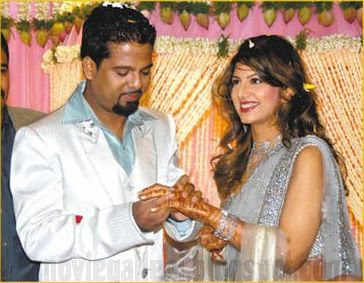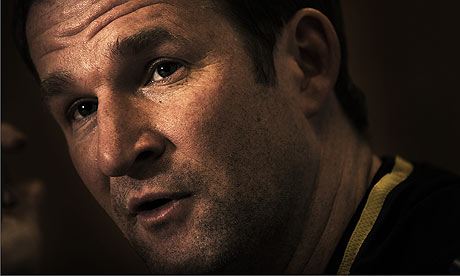Let me tell you a story, a true story.
As I recall it was late April 1977. I had a university pal called Zippy who looked like the bass guitarist out of The Bay City Rollers. He was a keen Glasgow Rangers fan. Someone had let him down so he asked me if I would like to travel up to Aberdeen with him to watch his team in an end of season match. Loving football and having never been to Aberdeen before, I agreed.
We went up by train on the Friday afternoon. It was one of those clear springtime weekends when the sky is as blue as a robin's egg and the sun sharp but slightly honeyed . We stayed in a student house near The Granite City's university.
At 3pm on Saturday afternoon, we were in Aberdeen's Pittodrie stadium along with several thousand Rangers supporters who both outsung and outnumbered the host club's fans. Many were steaming drunk. In Glasgow, football has always been a kind of religion. Downtrodden workers from the mean streets of Easterhouse, Maryhill and Clydebank look to football for escape, joy and the fulfilment of dreams. It's not just about watching twenty two men kick a leather ball around.
I remember little of that match except that Aberdeen won 2-1 and that Rangers had the great John Greig in defence and the almost equally great Derek Johnstone on the wing. Surrounded by seething, frothing Glaswegians, Zippy and I made our way back to the railway station, pleased that we wouldn't be on one of the notorious football specials. No, we would be taking the slow train - a service train that would eventually bring us to Stirling after numerous stops.
It was an old train with compartments and side corridors that ambled along the coast towards Dundee before cutting inland bound for Stirling and finally Glasgow. To our disquiet, there were lots of Rangers fans aboard - singing and shouting, intimidating other passengers and generally being yobbish. With no empty seats visible and conscious of my English accent that could have easily been like a red rag to a bull to these neanderthals, Zippy and I stood in the rear corridor of our carriage next to the window - aiming to be as inconspicuous as possible.
Two stops down the line at Stonehaven, we noticed a few people on the platform, naturally oblivious to the fact that their usually quiet coastal service had been turned into an unofficial football special. The yobs were yelling their obscenities, beating on the windows, singing their tribal chants. The bespectacled old guard, nearing his retirement had already made a creditable but hopeless effort to control the hooligans before retreating to a safer part of the train.
In my mind's eye I can see her again now - as clear as that blue sky day though it was over thirty years ago. She was about sixteen - maybe seventeen. Perhaps she'd been into Stonehaven for a Saturday afternoon treat - a little shopping, perhaps meeting friends. She was of medium height with shoulder length ash blonde hair. Her skin was clean and unblemished. Her tidy coat was camel hair coloured and she was holding a black shopping bag. This girl, somebody's daughter, conveyed an air of innocence mingled with self -assurance - the sort of girl who comes from a "good family" and does well in school.
Realising the train was full, she stood on the opposite side of the corridor looking out of the window as the train set off again. Glancing her from the first compartment, a couple of the hooligans came out to her and in spite of her protestations insisted that she take a seat in their already crowded compartment. Finally, they literally pulled her in. At first, there was salacious laughter, hoots and yells with the girl's protesting voice no doubt being quelled by stolen kisses.
The train was going clackety clack on its way to Montrose and then the terror properly begun. We could hear the girl's protests turning to primeval screams of terror as the laughing yobs sexually assaulted her. We asked each other what we should do and realised that we could do nothing. If we entered the compartment we would be dead meat and the same would happen if we pulled the emergency cord. They would know that we had pulled it.
I can still hear that girl's futile, agonised cries. At times they have haunted me, tormented me - made me wonder what I might have done, made me wish that I had had superhuman powers - as in the movies whereby I'd have hurled each of the miserable predators off that train and saved that poor girl's innocence, ensuring she wouldn't have to live each succeeding year with the horror of what happened that early evening in April.
At Montrose, fifteen or twenty minutes down the line, they released her, tears streaming down her face, her hair dishevelled, her bag gone. Traumatised and speechless, she was standing on the platform as the train continued its journey. Raucously, the animals congratulated each other before gradually quietening - no doubt excess of alcohol was taking its toll.
Of course we reported the incident to an official at Stirling railway station. He took our names and addresses and a few other details but that was the last we heard about it. And we never saw the pretty girl from Stonehaven again but if by some remote chance she is reading this I would like to say how very sorry I am that I didn't do something to protect you and also how sad I am that your adult life has undoubtedly been blighted by your memory of that terrible journey.
Stonehaven station









 Poike peninsula
Poike peninsula

























